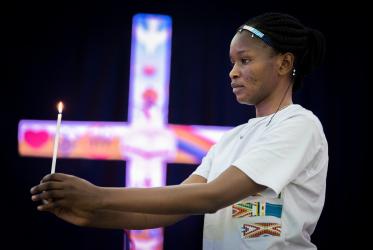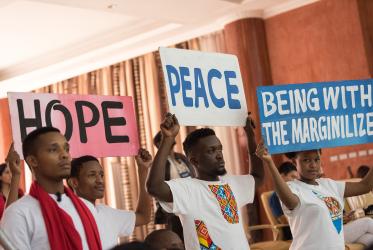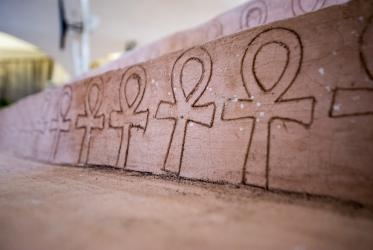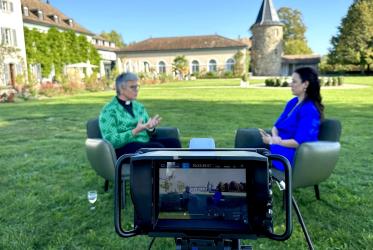The World Council of Churches (WCC) Faith and Order Commission is making significant new contributions to global dialogues related to the Pilgrimage of Justice and Peace, ecclesiology, and moral discernment. The fruits of the commission’s work come from its three study groups, which explore different facets of the nature of the church as they illuminate a pursuit of church unity.
The commission, as it celebrates the diversity of humankind, culture and church, rejects any sense that one kind of culture should dominate or that humankind should be rendered uniform. At the same time, the commission works to deepen and share what divided churches hold in common about the nature and mission of the one church.
The WCC Faith and Order Commission is a study commission, or a think tank constituted by official representatives of churches belonging to the main historical streams of Christianity, including the Roman Catholic Church. The commission is a unique multilateral, global forum of ecumenical theology.
The gears of Faith and Order: three study groups
The work of the WCC Faith and Order Commission is carried on through three study groups focusing on the Pilgrimage of Justice and Peace, ecclesiology, and moral discernment. The first study group has released the text “Come and See: A Theological Invitation to the Pilgrimage of Justice and Peace,” and has completed work on two companion texts: “Love and Witness: Proclaiming the Peace of the Lord Jesus Christ in a Religiously Plural World,” and “Cultivate and Care: An Ecumenical Theology of Justice for Creation.”
“Both documents develop themes that emerge in the later part of ‘Come and See,’ ” explained Prof. Sandra Beardsall, professor of Church History and Ecumenics at St Andrew's College, Saskatoon, Canada."They invite us into a deeper exploration of the Pilgrimage of Justice and Peace.”
The second study group is analyzing more than 70 responses to the text “The Church: Towards a Common Vision”, most of them by member churches and national councils of churches. Members of one subgroup have identified 16 theological key themes that appear in the responses and are preparing papers on each of them, identifying points for further work by the full Faith and Order Commission. The members of the other subgroup are reaching out to those who do not feel represented by “The Church: Towards a Common Vision.” These may include those who are not members of the WCC, and religious movements or emerging churches.
“Interestingly, there is considerable overlap in the lists of keywords of both subgroups. They include among others ministry, sacraments, or the role of women in the church,” said Prof. Dr Angela Berlis, dean of the Theological Faculty at University of Bern. “The emerging churches also bring new emphases and themes, and we are currently thinking about how to bring those themes into dialogue in a careful and respectful way.”
The third study group, which concentrates on moral discernment, acknowledges that churches respond differently to ethical questions, risking either divisions within themselves or preventing them from witnessing with one voice. Some questions the group commonly explores include: How is it that ethical responses differ? Why do some ethical topics endanger or prevent unity and others do not?
“The Faith and Order Commission intends to help the churches by investigating which sources and factors play a role in the process that they engage in when discerning ethical questions,” explained Prof. Dr, Myriam Wijlens (Erfurt University), one of the representatives of the Roman Catholic Church on the Commission.
The commission solicited a collection of self descriptions by the different traditions about their discernment process. It also asked: what can we learn from the past?
The resulting sets of papers have enabled the study group to begin to understand how differently the discernment processes in the different traditions can be. “While as a first step these papers will be published soon, a deeper analyses of these papers is currently being conducted,” said Wijlens.
Read more on the latest WCC Faith and Order Commission meeting in China







